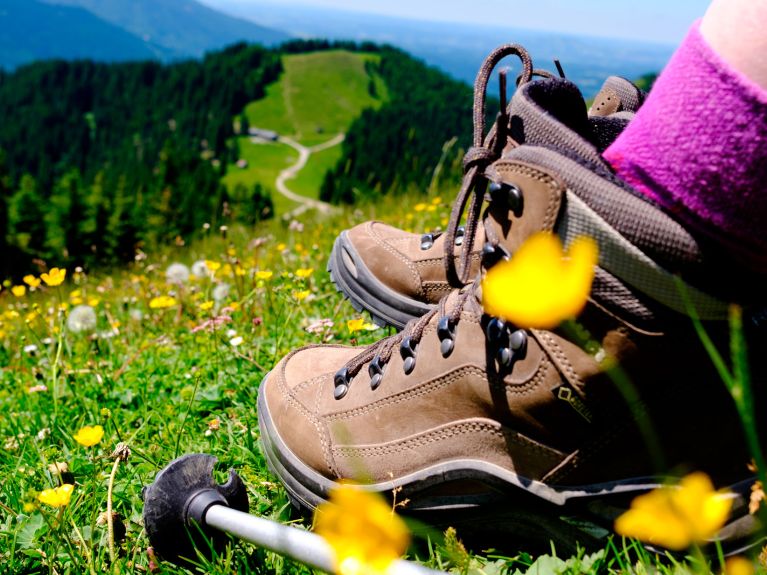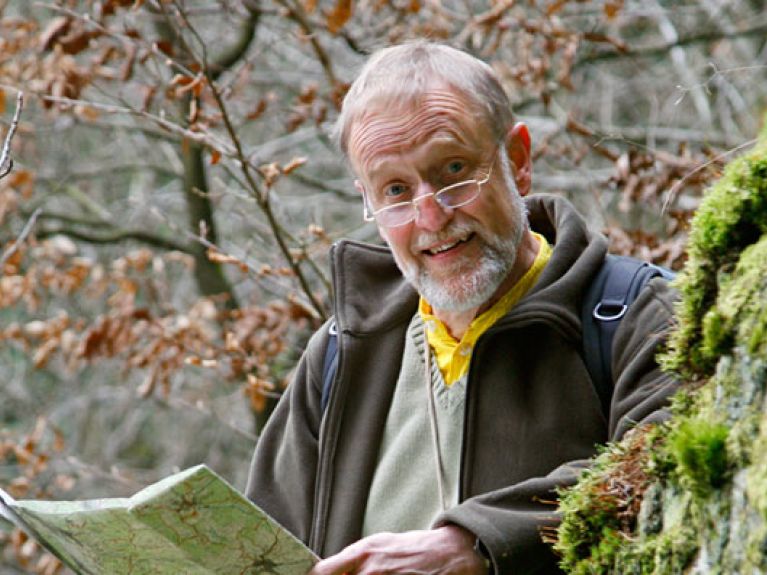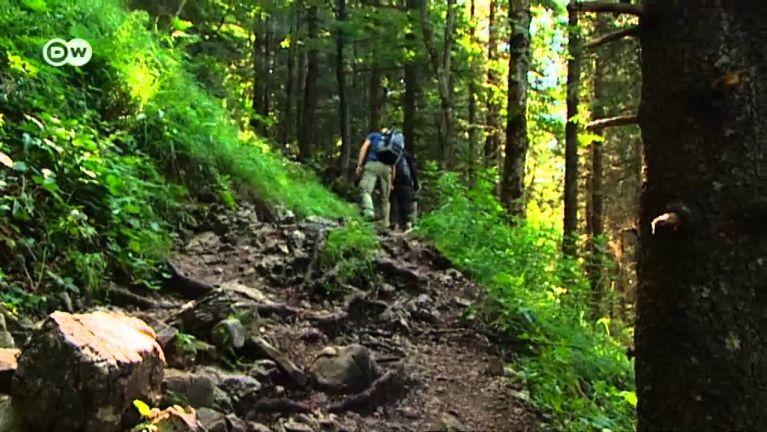That’s why we love hiking
The German Uplands are a paradise for hikers, says the nature sociologist Rainer Brämer. He knows the best hiking trails in the country.

Germany. Hard work for the legs, relaxation for the spirit: hiking keeps you fit and acts against stress, overweight and hypertension. This is why even couch potatoes are invited to the world’s biggest hiking festival, the German Hiking Day: up to 50,000 guests are expected in Eisenach from 26 to 31 July. In the following interview, the Marburg nature sociologist Rainer Brämer explains how a perfect hiking trail looks and how hiking awakens ancient human instincts.

Mr Brämer, you and your colleagues at the German Hiking Institute plan new routes and award the accolade of “premium hiking trails”. What tours guarantee a perfect hiking experience?
For leisure hikers, like the Germans, the route shouldn’t be too arduous. The ascent should be moderate, the duration of the hike not longer than a day. This makes big demands on the landscape. In the German low mountain ranges these are often satisfied: the routes lead along narrow, varied paths through pretty little villages and forest clearings, meadows and along streams, to a ridge with a panorama. Constant variety and the experience of nature are decisive. On our certified premium hiking trails the infrastructure is also ideal; numerous signposts provide for abundant safety.
Dieses YouTube-Video kann in einem neuen Tab abgespielt werden
YouTube öffnenThird party content
We use YouTube to embed content that may collect data about your activity. Please review the details and accept the service to see this content.
Open consent formAbout half the German population is regularly drawn to the mountains. Why do so many people love hiking?
The joy in a beautiful landscape, which we can enjoy only when we can move in it safely, is deeply anchored in us. Surroundings in which we grew up we find particularly pleasant. Our ancestors, hunters and gatherers, were safest from unpleasant surprises when in familiar terrain. This is the origin of our liking for panoramas: the mountain protects and at the same time offers a good view of potential food and enemies. Our joy in idyllic bodies of water also has its origin in pre-historic times; rivers and streams provided drinking water.
Dieses YouTube-Video kann in einem neuen Tab abgespielt werden
YouTube öffnenThird party content
We use YouTube to embed content that may collect data about your activity. Please review the details and accept the service to see this content.
Open consent formA good infrastructure is one thing. But today most hikers are less likely to be underway in pristine nature than in cultural landscapes. Is that still attractive?
After 30 years of debates about ecology, we have an esoteric relationship with nature. I consider it a mistake to think nature is only where man is not. The experience of nature is in fact a subjective impression.
In the “Jugendreport Natur” [Young People’s Report on Nature], you’ve been documenting since 1977 the relationship of young people to nature. Your latest report shows that young people seek to experience something less in nature than on the social media.
Measured by the attractions of the media, nature seems to be too boring. This feeling results in a loss of elementary knowledge: only one in three young people who we interviewed for our study knew at which point of the compass the sun rises. Hiking associations have countered this trend with programmes targeting children and young people. If you discover your love for nature as a child, you never lose it even as an adult.


